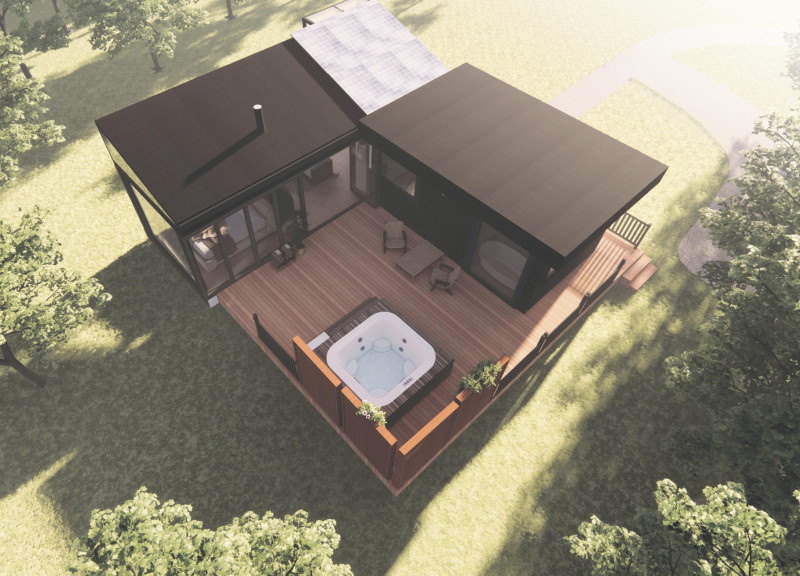5 key facts about this project
The Romantic Cabin, located within the Earth Energies property in New Zealand, is designed as a retreat for two guests seeking peace and relaxation. It focuses on creating a connection with the surrounding landscape while maintaining a modern and comfortable environment. The overall design concept emphasizes the importance of nature in enhancing the experience of those who stay there.
Design Configuration
The cabin features an L-shaped layout that provides privacy while offering views of the Coromandel Range and Firth of Thames. This design creates separate areas within the cabin that cater to both shared and individual moments. Each space is arranged to encourage exploration while fostering a sense of intimacy and a cozy atmosphere.
Natural Light and Energy Efficiency
A significant aspect of the cabin is its solar passive design. This design choice allows natural light to fill the open spaces during the day, helping to reduce the need for artificial lighting. The cabin also integrates alternative energy sources, allowing it to run off-grid. This feature supports sustainability and minimizes maintenance challenges for guests.
Material and Aesthetic Considerations
Locally sourced timber is used for the cabin’s construction, reflecting New Zealand’s dedication to sustainability. This choice of material adds warmth and connects the cabin to its natural surroundings. The use of timber enhances the overall visual appeal of the space and creates a comfortable atmosphere for visitors.
Guest Experience and Functionality
Inside the cabin, strategically placed openings frame stunning views, drawing attention to the landscape outside. A well-equipped kitchen invites guests to cook using the hosts’ “We create, you cook” menu. This combination of architecture and experience encourages guests to feel connected to their environment. Relaxation therapies can be enjoyed at any time, with natural light providing a soothing backdrop during both sunrise and sunset.





















































